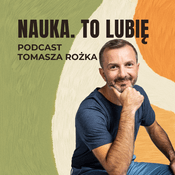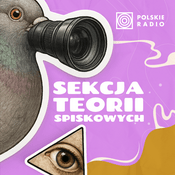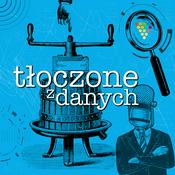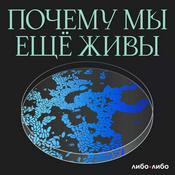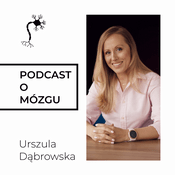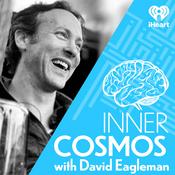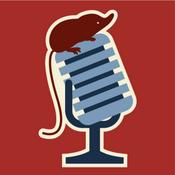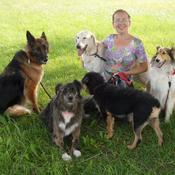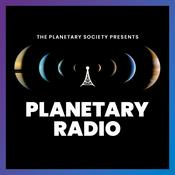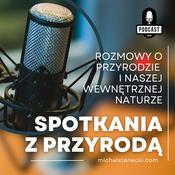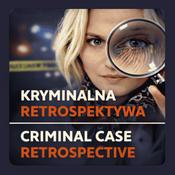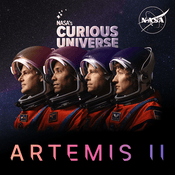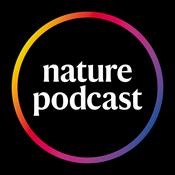17 odcinków

#16: Minisode 1 - Wildlife Health Research Study Wins Interesting Award
14.02.2022 | 16 min.
Michelle and Vin discuss a hilarious and fascinating award given to a unique wildlife health study in the....transportation category? We wrap up by overviewing other winners of the award in 2021. Ig Noble Award winners and Annals of Improbable Research (AIR) https://improbable.com/ig/winners/ Rhino Study https://bioone.org/journals/journal-of-wildlife-diseases/volume-57/issue-2/2019-08-202/THE-PULMONARY-AND-METABOLIC-EFFECTS-OF-SUSPENSION-BY-THE-FEET/10.7589/2019-08-202.short Connect with Us! Website | https://wildlifehealth.org/podcast/ Instagram | https://www.instagram.com/wildlife_health_connections/ Facebook | https://www.facebook.com/WildlifeHealthConnections

#15: The Story of an Emerging Wildlife Virus Featuring the Pathologist on the Frontlines, Dr. David Needle
02.02.2022 | 34 min.
Anytime a wildlife disease story gets covered in mainstream news media, we get excited! In January 2022, a news story about Skunk Adenovirus 1 causing mortality in porcupines caught our attention. In this episode, we chat with Dr. David Needle, senior pathologist at the New Hampshire Veterinary Diagnostic Lab and the first person to diagnose Skunk Adenovirus 1 in the U.S. Since then, he’s been studying this emerging wildlife disease as it keeps popping up in different species. Links! Check out the New Hampshire Veterinary Diagnostic Lab: https://colsa.unh.edu/new-hampshire-veterinary-diagnostic-laboratory Here’s that awesome book that Dr. Needle mentions: The North American Porcupine by Uldis Roze (second edition) -https://www.buteobooks.com/product/c517.html News Stories about Skunk Adenovirus: https://apnews.com/article/science-health-maine-wildlife-harbors-0e8fea831c4edfbd8fe69effd6ea4269 https://www.unh.edu/unhtoday/2018/12/unh-veterinary-pathologist-identifies-first-case-skunk-adenovirus-1-us-third-world *** Connect with Us! Website | https://wildlifehealth.org/podcast/ Instagram | https://www.instagram.com/wildlife_health_connections/ Facebook | https://www.facebook.com/WildlifeHealthConnections

#14: Lead (Pb), Raptors of the Greater Yellowstone Ecosystem, and a New Initiative with Biologist Bryan Bedrosian
20.01.2022 | 59 min.
The Yellowstone area is a hub of North American wildlife, but lead (Pb) poisoning via ingestion of Pb hunting ammunition remains a serious concern for some species. The interplay of the Yellowstone area as an important area for both wildlife and human activities such as hunting is undoubtedly complex. In this episode, we dive into the issue with Bryan Bedrosian, Conservation Director of the Teton Raptor Center as well as the Director & Co-founder of Sporting Lead Free. Bryan has spent the past 2 decades studying the issue of lead in many species in the Greater Yellowstone Ecosystem including eagles and ravens. We discuss the various pathways of lead exposure and its impacts on wildlife, as well as the challenges of capturing and sampling raptors and ravens in the wild. We dive into the Sporting Lead Free initiative with Bryan and discuss their efforts to drive non-political, voluntary reductions in lead consumption by wildlife and people. Let's Go! We’re a podcast with a purpose! One of our main goals is to support all the individuals and organizations fighting the good fight and working to keep our wildlife and ecosystems healthy. If you enjoyed this episode, please check out the great work of Teton Raptor Center and Sporting Lead Free: To Learn More About Bryan's work at Teton Raptor Center: Website: https://tetonraptorcenter.org/ IG: https://instagram.com/tetonraptorcenter FB: https://m.facebook.com/tetonraptorcenter To learn more about Sporting Lead Free: SPORTING LEAD FREE Website: https://sportingleadfree.org/ IG: https://instagram.com/sportingleadfree FB: https://m.facebook.com/Sportingleadfree Here's the direct link to become a member of Sporting Lead Free and receive an AWESOME COOZIE for free or preferably with a donation: https://sportingleadfree.org/become-a-member *** Connect with Us! Website | https://wildlifehealth.org/podcast/ Instagram | https://www.instagram.com/wildlife_health_connections/ Facebook | https://www.facebook.com/WildlifeHealthConnections

#13: Top Five Wildlife Health News Stories of 2021
03.01.2022 | 38 min.
2021 has been a busy year in wildlife health. Michelle and Vin discuss some of the top stories that highlight the overlap of domestic animal, wildlife, human, and environmental health. They also share their resolutions for the podcast. *** Connect with Us! Website | https://wildlifehealth.org/podcast/ Instagram | https://www.instagram.com/wildlife_health_connections/ Facebook | https://www.facebook.com/WildlifeHealthConnections

#12: Transmissible Treponemes: Studying Elk Hoof Disease Using a Captive Herd with Dr. Margaret Wild
16.12.2021 | 55 min.
In Washington State, around the year 2008, reports of limping wild elk started to rise dramatically. These elk had hooves that were completely abnormal looking. Some of the deformities looked so bad that it was hard to tell it was even a hoof. The elk looked like they had a claw or a slipper on their feet instead of a hoof. And to complicate things, at the time wildlife managers still didn’t know exactly what caused this horrible elk hoof disease, or if it could spread from one infected elk to another. In today’s episode, we get to hear all the details about how our guest Dr. Margaret Wild and her team at Washington State University designed and built a facility to study hoof disease in a captive elk herd. By studying elk in a captive setting, this allowed Dr. Wild to set up carefully controlled studies to answer the key questions of 1.) what actually causes elk hoof disease 2.) can it be spread between elk and 3) what other factors such as nutrition or environmental conditions influence this disease process? *** To Learn More About Dr. Wild’s Elk Hoof Disease Research at Washington State University: https://vmp.vetmed.wsu.edu/research/elk-hoof-disease/wsu-research More Info on Elk Hoof Disease (Treponeme-Associated Hoof Disease): https://vmp.vetmed.wsu.edu/research/elk-hoof-disease/about-elk-hoof-disease Link to Craig Stephen et al Article- Using a Harm Reduction Approach in an Environmental Case Study of Fish and Wildlife Health: https://link.springer.com/article/10.1007/s10393-017-1311-4 We’re a podcast with a purpose! One of our main goals is to support all the individuals and organizations fighting the good fight and working to keep our wildlife and ecosystems healthy. If you enjoyed this episode, please check out the following link to support the Elk Hoof Disease Research Fund: https://foundation.wsu.edu/give/?fund=656590c1-c379-4751-a7fc-a49e7ec77ef9&cat=idonate_colleges&area=idonate_veterinary_medicine&utm_source=veterinary-medicine&utm_medium=wsu-link&utm_campaign=elk-hoof-disease-research-fund *** Connect with Us! Website | https://wildlifehealth.org/podcast/ Instagram | https://www.instagram.com/wildlife_health_connections/ Facebook | https://www.facebook.com/WildlifeHealthConnections
Więcej Nauka podcastów
Trendy w podcaście Nauka
O Wildlife Health Connections
Słuchaj Wildlife Health Connections, Nauka To Lubię i wielu innych podcastów z całego świata dzięki aplikacji radio.pl
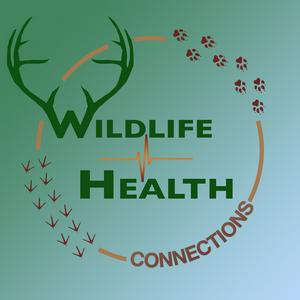
Uzyskaj bezpłatną aplikację radio.pl
- Stacje i podcasty do zakładek
- Strumieniuj przez Wi-Fi lub Bluetooth
- Obsługuje Carplay & Android Auto
- Jeszcze więcej funkcjonalności
Uzyskaj bezpłatną aplikację radio.pl
- Stacje i podcasty do zakładek
- Strumieniuj przez Wi-Fi lub Bluetooth
- Obsługuje Carplay & Android Auto
- Jeszcze więcej funkcjonalności


Wildlife Health Connections
pobierz aplikację,
zacznij słuchać.
